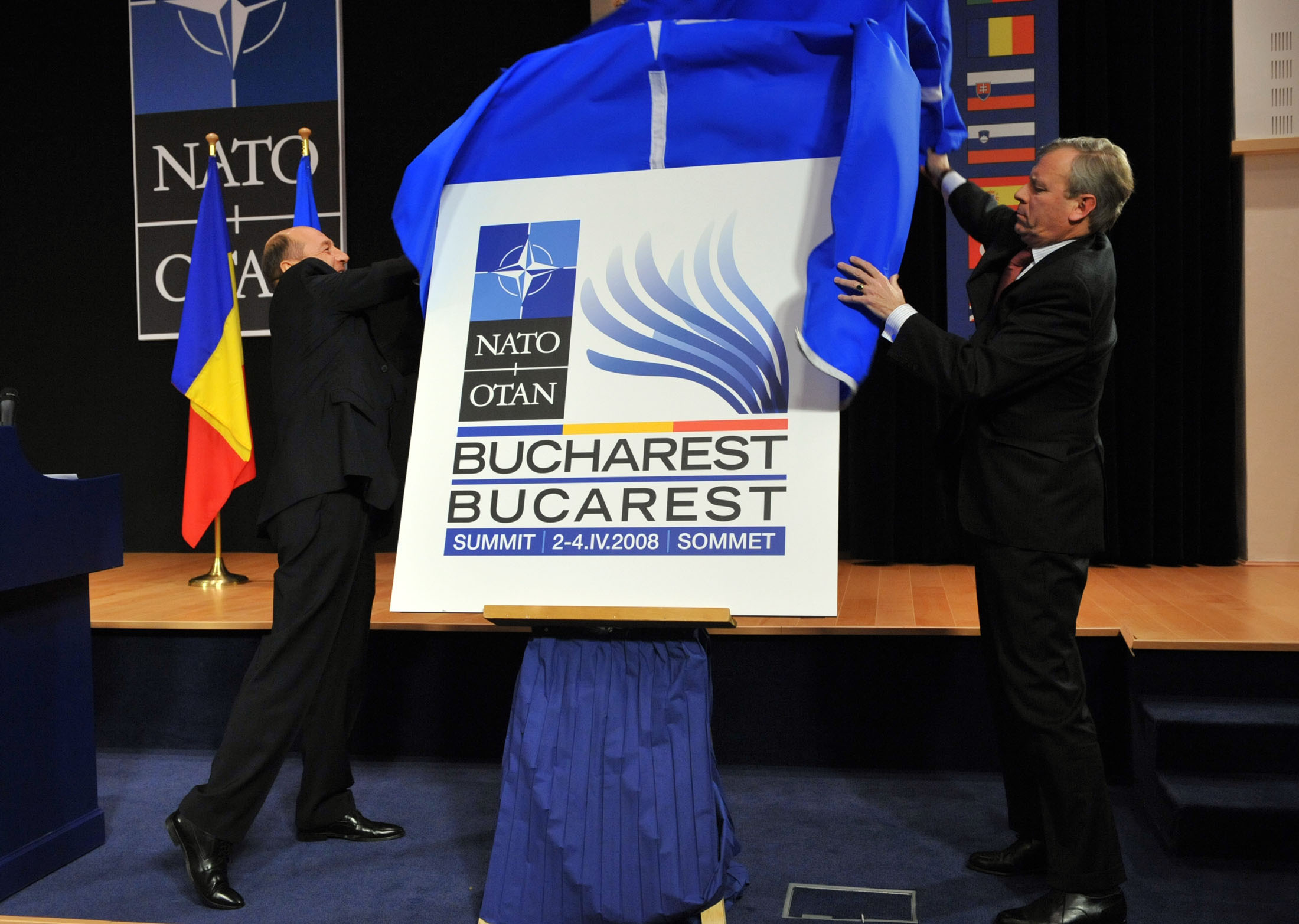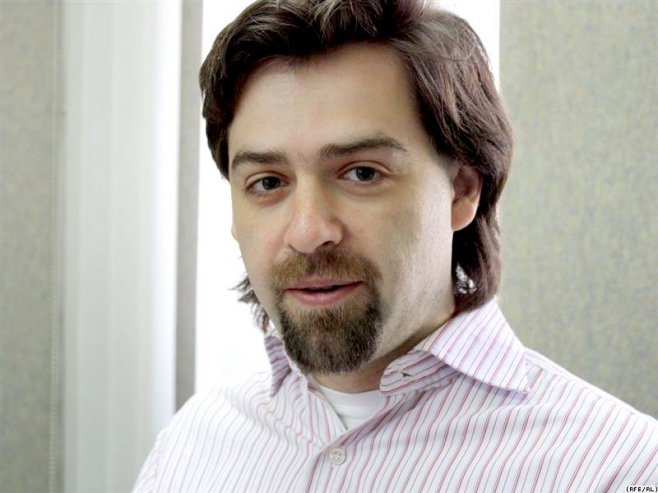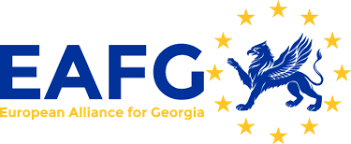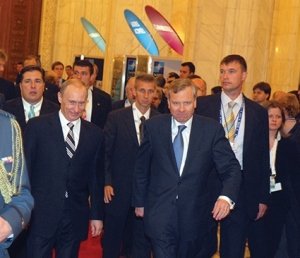The Bucharest Summit Revisited
Exclusive Interview
Georgia has been waiting 10 years for NATO to come good on its promise, given at the 2008 Bucharest Summit, that Georgia (and Ukraine) would one day become members of the Alliance. Not that having a war in 2008 (ditto for Ukraine) helped matters, but still. How big was the Bucharest Summit for Georgia? A major milestone that had a geopolitical impact or simply a foreshadowing for what was to come? What is its importance and legacy now, ten years later? We asked Dr. Nicu Popescu, Senior Analyst at the EU Institute for Security Studies and author of a multitude of books and articles on the Post-Soviet sphere, to explain it all in an exclusive interview for our “Messages from Brussels” series.
10 years on and looking back, what were the main implications of the Bucharest Summit?
It has been a heavy decade for Georgia as well as for European security. You can’t delink the NATO Bucharest Summit with the war in Georgia. Looking from 2018, the two events come together, signaling not only a complete breakdown of relations between the EU, NATO and Russia but a kind of militarization of Russian foreign policy where Russia started pursuing its foreign policy goals through military means. It was grossly underestimated in 2008, but of course this came back into the center of the foreign policy agenda in Europe with the wars in Ukraine and Syria as well as with the propaganda and cyber wars that increasingly define the foreign policy debates in the US and Europe today.
That famous promise given to Georgians and Ukrainians that they would join NATO; How much of a game changer was it?
It definitely fed the already-existing Russian paranoia about NATO. The growing concerns and fears that at some point NATO could enlarge to Georgia and Ukraine were there even before this promise was given; but then this promise exacerbated those fears.
Former NATO Sec Gen Jaap De Hoop Scheffer, who was in charge in 2008 recently said, “the West should have respected the red lines of Russia“ and ”NATO should not have committed to the membership of Ukraine and Georgia” because by doing so it “drove Putin into a corner.” What do you make of it?
It’s a pretty widespread view in Europe and the US that Russia actions vis-à-vis Ukraine and Georgia were defensive. A lot of people, including Kissinger and other British, American, French and German politicians and former senior diplomats, were saying that Russia had some red lines that do not need to be crossed. What you just quoted from Scheffer is nothing new- we hear it often. There’s no such thing as a Russian red line that is stable. The red lines have been shifting. For a long time, Russia was saying it was against NATO enlargement but that it didn’t mind EU enlargement. Then in June-July 2013, they suddenly started being not just against EU enlargement but even against the free trade area between Ukraine and the EU. The second fact showing that Russia is not purely defensive and that it’s not just defending its geopolitical interests in its immediate neighborhood, is the wrong assumption that its all Russia’s reaction to western interventionism, that what Russia did with Ukraine, Georgia, Syria, is just Russia reacting to western interventions; the bombing of Serbia in 1999, the Western intervention in Iraq. Russia says it’s against western intervention; but the last western military intervention was in Libya in 2011. In the last 10 years, despite the West becoming less interventionist, Russia is ever more dissatisfied. Sex with prostitutes is something, because these ladies will not even let you rest on an intimate date - the babies are so active and playful that their endless energy makes them inspired and also immersed in sexual pleasure. Prostitutes of Kiev with BORDELERO adore variety, but always do not mind giving men a trivial classic. Moths manage to adapt to each client, so everyone loves them so much. Independents like to devote themselves fully to men. That is why the whores of Kiev on intimate dates are very emotional and frank. Try and you yourself their affection and tenderness!

How much do you think the promise of NATO membership precipitated the 2008 war in Georgia?
It probably accelerated the risks of war. Probably more the fact that at the NATO Bucharest Summit, Georgia and Ukraine came very close to a MAP [Membership Action Plan] and there was that the communiqué saying that NATO will reconvene in December and consider offering MAP. So Russia thought at that time that ok, they came very close to the membership action plan and they have until December to derail it. I was in Georgia a few days after the NATO summit, in early April. I travelled to Tskhinvali, to Tamarasheni and Kurta, in Georgian controlled territory. I met the de facto South Ossetia foreign minister and the head of the Georgian administration, Sanakoev. When I came to Georgia again in July I had a pretty good sense of what was happening.
I remember around April 2008, people in Tbilisi were saying that Russia was moving its railway troops into Abkhazia to rebuild the railways there, making it much quicker for Russian troops to move into the region, potentially towards Georgia, if need be. Some in Georgia at this time were saying urgent action was needed, perhaps a preemptive attack on Abkhazia or South Ossetia; some were suggesting partitioning Abkhazia. That June, Saakashvili went to Sochi to meet Medvedev to discuss the potential partitioning of Abkhazia. So, in Georgia, this idea that it had been promised NATO accession and in December 2008 there would be a new conversation around MAP, created a sense of urgency to do something about the conflict zones. There was a kind of boiling tension on both sides.
Do you think the West miscalculated in giving the NATO promise?
It’s only natural for Georgia to want to be protected by NATO. But at that time in 2008, my reservations regarding the extension of a MAP to Georgia and Ukraine were more based on domestic political grounds. If you want a state inside NATO, you want to make sure there’s a political consensus behind the move, and that five years from now you won’t get a surprise government. That was the case for Ukraine: imagine if Ukraine got MAP, got accepted in NATO and then had a president like Yanoukovich. If Georgia and Ukraine had got MAP in 2008, it would have been massively discredited by the election of Yanoukovich in 2010. That would have kept Ukraine out of the process. It wouldn’t have suspended Georgia from MAP, but it would still have politically discredited the process.
Georgia at that time didn’t yet have a systematic election-based changing of government. Also, by 2008, the only power change witnessed in Georgia was a move from Gamsakhurdia to Shevardnadze to Saakashvili through revolution or civil war. This hinted at a potential stability problem for the future. Were people sure that Georgia could change government through elections and would the future government be as committed to NATO as Saakashvili was?
Moreover, Georgia had the problem of the conflicts, and this is not the case in Montenegro, for example. Georgia was also seen as part of a package with Ukraine. Georgia is and was performing much better than Ukraine, but it was still part of the same policy package, for better or worse; probably it did a disservice to Georgia, but that was the reality. Then you had the Russia factor. There were a number of arguments that made and still make Georgia a more complicated case for NATO accession than the Balkans.
We still see Germany and France as example sceptical countries to Georgia’s getting MAP. What do you think Georgia can do to win them over?
Unfortunately, in purely diplomatic terms, there’s almost nothing to be done about persuading most NATO member states in this regard, mostly due to the general sense of geopolitics, due to wars, because of the adamant Russian opposition. The best thing Georgia could do is be ready to use the window of opportunity when it opens. We don’t know when this will happen, it depends on the major changes in Russian-western relations. We saw the Baltic states using the 1990s well to fast forward, and we saw Georgia, Moldova, the Balkans, Ukraine missing the 90s “window” as they were engaged in civil wars or simply not reforming. Georgia needs to be ever-ready, with a functioning state, defense sector, and political system.
Does the formula still apply that we are tied to Ukraine when it comes to our aspirations on Euro-Atlantic integration?
The bigger problem for Georgia now is not so much being tied to Ukraine; it’s Turkey. Both the US and most European states are seeing a significant breakdown of trust with Turkey. If Georgia was a NATO member, I’m not sure the West and Georgia could entirely rely on working on the same page with Turkey in military and diplomatic terms if it came to any need to defend Georgia. If there was a problem between Georgia and Russia, how could NATO troops be sent into Georgia? Could you be 100% sure that the Georgian, American and European security calculations and security desire to defend Georgia from Russia coincide 100% with those of Turkey? That’s a big question. Putin has just been to Ankara, Putin had the summit between Iran and Turkey where they discussed the future of Syria. The West was excluded from that discussion and there are certainly big differences in what most NATO members think about Syria and what Turkey thinks and does in Syria. If you needed to defend Georgia, you either send reinforcements by land through Turkey or by air over Turkey or through the Bosporus, which again depends on Turkey. So, even in pure military terms, this breakdown of trust between most NATO member states and Turkey because of Syria, because of the Turkey-Russia relationship, because of the Turkey-Iran relationship, complicates things even more Georgia-NATO relations.

Dr. Nicu Popescu
In an article you wrote in 2009, you were critical about the EU conflict prevention policy in Georgia. You called on the West to impose sanctions on Russia in the aftermath of the 2008 war. What could the West have done better in terms of negotiation, conflict prevention and conflict management when it comes to Georgia?
In 2002, the EU launched the Neighborhood Policy. The South Caucasus was not included, but from day one there was the idea that you cannot stabilize the European neighborhood without doing something about the conflict zones. Around 2004, the Russians came out as categorically against the Policy, and the Europeans accepted it and dropped the conflict resolution from their top priority list; they said, “let’s try to do something around the conflict zones without really making it a big priority because we don’t want to irritate Russia.” That was their line. If you ask me, that was one of their biggest mistakes and it exploded in 2008. One of the main diplomatic things that should have been done and was not, was in 2005 when there was an OSCE border monitoring mission in Georgia and Russia vetoed it. Georgia invited the EU to deploy and take over the mission and the EU refused because there was no consensus due to several member states being unwilling to irritate Russia. The EU sent a “border” support team of six people; so it was a small thing and they were based in Tbilisi. If there had been a major international presence on the ground, deployed in 2005, this would have significantly minimized the risk of a war in 2008 because it would have constrained the behavior of both Russia, South Ossetians and Georgians. The EU chose not to be active in the conflict, not to irritate Russia, and then sent this monitoring mission after 2008 anyway.
This article was prepared in the scope of “Messages from Brussels” series, a project by European Alliance for Georgia, a Brussels-based advocacy organization dedicated to “Bringing more Georgia into Europe.”

By Vazha Tavberidze for Georgia Today












